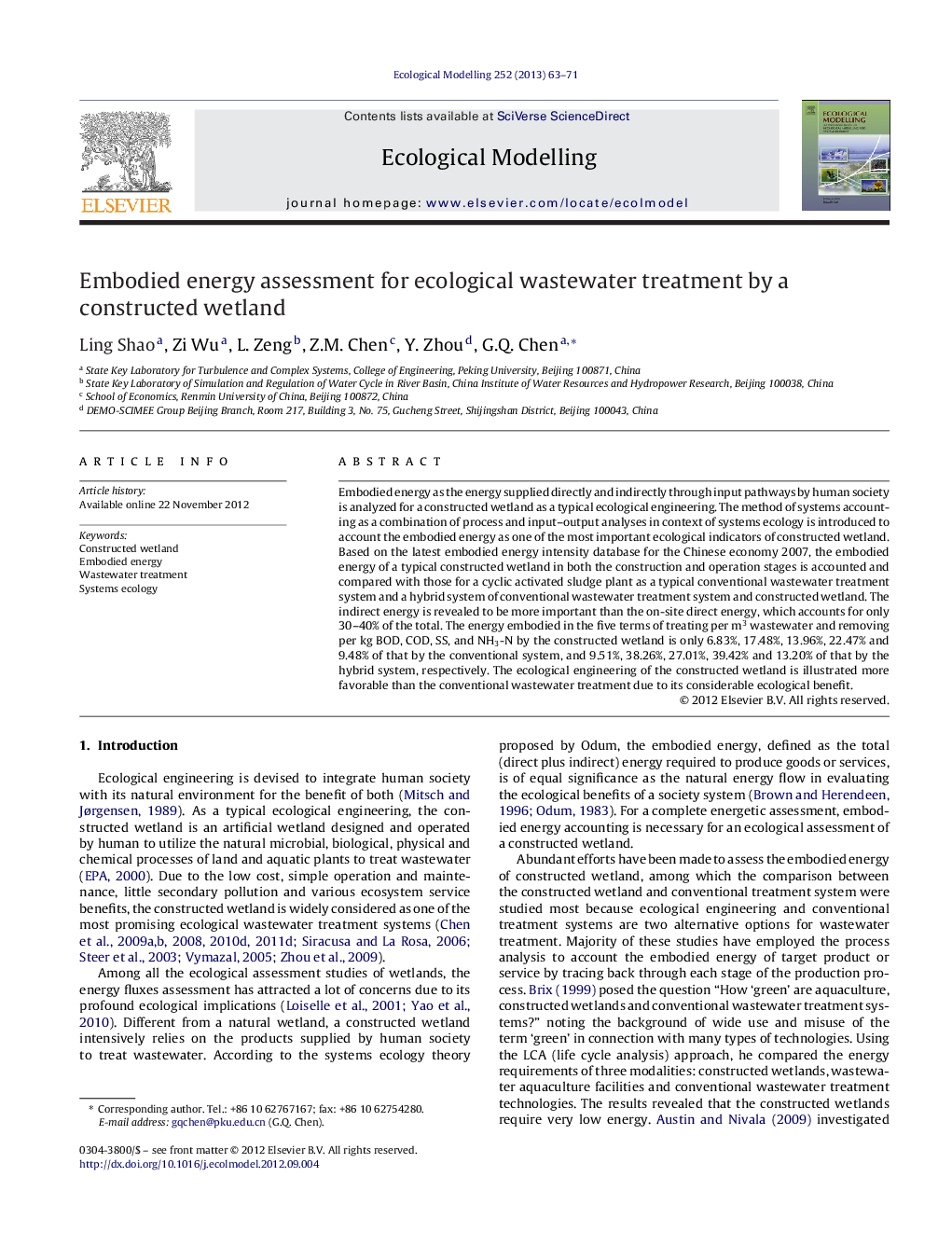| Article ID | Journal | Published Year | Pages | File Type |
|---|---|---|---|---|
| 4376189 | Ecological Modelling | 2013 | 9 Pages |
Embodied energy as the energy supplied directly and indirectly through input pathways by human society is analyzed for a constructed wetland as a typical ecological engineering. The method of systems accounting as a combination of process and input–output analyses in context of systems ecology is introduced to account the embodied energy as one of the most important ecological indicators of constructed wetland. Based on the latest embodied energy intensity database for the Chinese economy 2007, the embodied energy of a typical constructed wetland in both the construction and operation stages is accounted and compared with those for a cyclic activated sludge plant as a typical conventional wastewater treatment system and a hybrid system of conventional wastewater treatment system and constructed wetland. The indirect energy is revealed to be more important than the on-site direct energy, which accounts for only 30–40% of the total. The energy embodied in the five terms of treating per m3 wastewater and removing per kg BOD, COD, SS, and NH3-N by the constructed wetland is only 6.83%, 17.48%, 13.96%, 22.47% and 9.48% of that by the conventional system, and 9.51%, 38.26%, 27.01%, 39.42% and 13.20% of that by the hybrid system, respectively. The ecological engineering of the constructed wetland is illustrated more favorable than the conventional wastewater treatment due to its considerable ecological benefit.
► To carry out ecological assessment for constructed wetland as an ecological engineering. ► To account embodied energy as one of the most important ecological indicators. ► To introduce a systems accounting method in context of systems ecology. ► Based on the latest and systematic embodied energy intensity database and detailed inventory. ► To compare the energy performances of three wastewater treatment systems.
